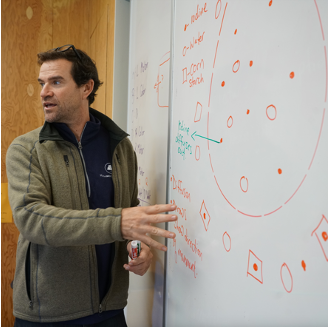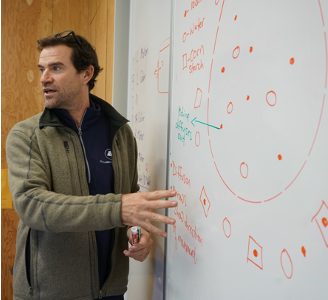Recently, I was listening to a podcast with David Eagleman, one of the leading neuroscientists of our time. An author and professor at Stanford University, he also is the CEO and co-founder of Neosensory, a company that develops devices for sensory substitution. In the podcast, he was talking about one of his recent books – Livewired, a book that focuses on brain plasticity by looking at concepts like synesthesia (the term for when you experience one of your senses through another sense), dreaming, and wearable neurotech devices.
At one point during the episode, the interviewer asks him what he would do if he had the power to redo education. Without missing a beat, he noted that the most important skill for students to develop is to learn how to think flexibly, taking data and then using it as a springboard into how you do something yourself. He went on to explain that he would create time at the end of each semester, where he would ask students to take what they have learned, “bend, blend, and break it”, and put it together in a different way. “This is the single skill we need to learn,” he explained, adding that children born today are going to take on a career when they grow up that we don’t even have a name for yet.
His comments resonated so powerfully with what we have always said at Hillbrook. As we have said for years, we are preparing students for careers that do not yet exist. I have recently reconnected with two alums in their mid-20s – one who works in bitcoin, the other who works at Tesla – both industries that have emerged since these students graduated from Hillbrook.
His comments also affirmed what we know about education – schools need to balance learning skills and knowledge with opportunities for interdisciplinary learning that offers students to break, blend, and bend knowledge in new and different ways. Our developing high school program includes multiple avenues for this type of learning. One example will be our Advanced Studies program, rigorous, college-level courses that will challenge students to engage deeply with a broad range of materials. Courses on Climate Change, Machine Learning, and AI for Social Good will exist alongside multivariable calculus, the History of Reconstruction, and thermodynamics. Unlike traditional AP courses that prioritize rote learning and multiple choice exams, our classes will challenge students to apply skills and knowledge, to develop the skills necessary to learn how to learn. Another signature part of our program will be Reach Beyond Immersives, three-week transcripted courses at the end of each semester. The end of 9th grade will involve courses that build on the 9th grade course of study in World Literature and Modern World History, creating opportunities for students to study immigration and multiculturalism in Vancouver, British Columbia, sustainable agriculture in New Zealand, or land conservation in Patagonia.
The more we learn about learning, the more we recognize the need to design schools that prioritize engagement and the application of knowledge and skills. It’s reassuring to know that neuroscientists also understand the types of school experiences that all students deserve to have.

